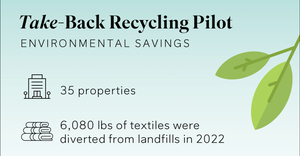June 1, 2005
WHEN DOES A STATE OR MUNICIPAL FEE on trucks that operate at least in part on an intrastate basis unlawfully interfere with interstate commerce? An answer will be coming soon from the U.S. Supreme Court.
The state of Michigan imposes a $100 annual fee on each truck that makes at least one delivery between two points within the state. A national trucking association calls the charge a “tax” and has challenged its validity under the Commerce Clause. State authorities argue that the charge is a bona fide regulatory fee used to support the state's supervision of intrastate truckers.
Under several U.S. Supreme Court rulings, taxes (revenue-raising measures) are scrutinized more closely than fees (funding for a regulatory program). The Michigan state courts treated the charge as a “fee” that did not discriminate against or burden interstate commerce. When the high court issues its decision, part of the opinion will be devoted to whether the Michigan charge is a bona fide regulatory fee or a tax.
The dormant aspect of the Commerce Clause prohibits state regulation, including taxation, that discriminates against or unduly burdens interstate commerce. The U.S. Supreme Court has ruled that a state discriminates against out-of-state businesses when it levies a flat tax as a precondition to the use of its roads by commercial vehicles. [American Trucking Ass'ns v. Scheiner, 483 U.S. 266 (1987)] A tax is “flat” when it contains no provision for adjustment based on the number of miles the vehicle travels within the taxing jurisdiction.
In Scheiner, the evidence showed that Pennsylvania-based vehicles traveled about five times as many miles on state roads as did the out-of-state vehicles. “[A] flat tax [on] a privilege that is several times more valuable to a local business than to its out-of-state competitors is unquestionably discriminatory [under] the Commerce Clause,” said the high court.
Local governments assess fees and charges on many different commercial vehicles, including solid waste packer trucks and transfer trailers. Some of these vehicles travel exclusively on intrastate routes, some on both intrastate and interstate routes, and a few exclusively on interstate routes. Last year, this column related a Texas appeals court ruling on permit and registration fees the city of Houston had imposed on drivers and vehicles involved in municipal solid waste hauling. [“Flat-Out Flagrant,” Waste Age, March 2004, p. 20]
Citing the Scheiner decision, the court ruled that the fees were essentially flat taxes that unduly burden interstate commerce because they were not apportioned based on how much activity the haulers conducted within the city. [Shannon v. State, 129 S.W.3d 670 (2004)]
In the Michigan case, a coalition of state and local government organizations is supporting the state with an amicus brief. The Acting Solicitor General of the United States also has filed a brief in support of the state. Amicus briefs in support of the trucking association have been filed by the U.S. Chamber of Commerce and National Private Truck Council.
The justices heard oral argument on April 26, but if they had any leanings, it was not obvious from the questions they posed. A ruling is expected by the end of June.
[American Trucking Associations Inc. v. Michigan Public Service Commission, No. 03-1230]
The columnist is a Rockville, Md., attorney and serves as general counsel of the Solid Waste Association of North America.
The legal editor welcomes comments from readers. Contact Barry Shanoff via e-mail: [email protected].
About the Author(s)
You May Also Like




